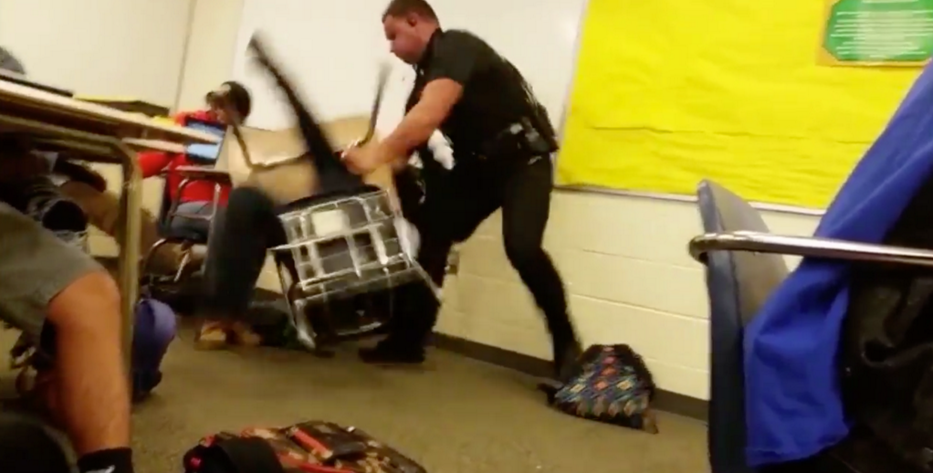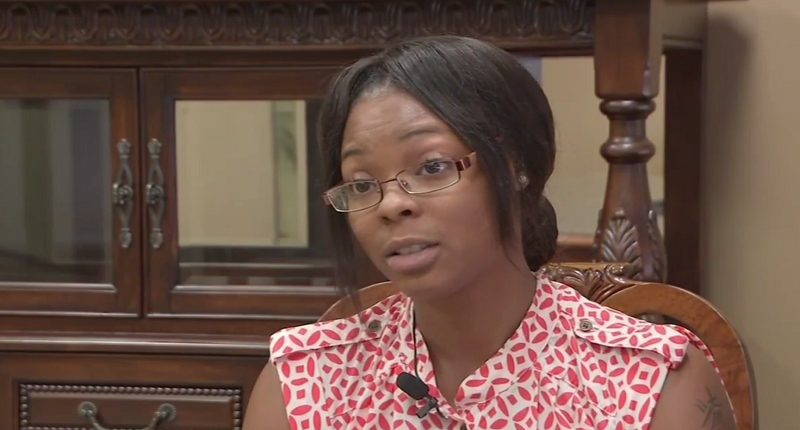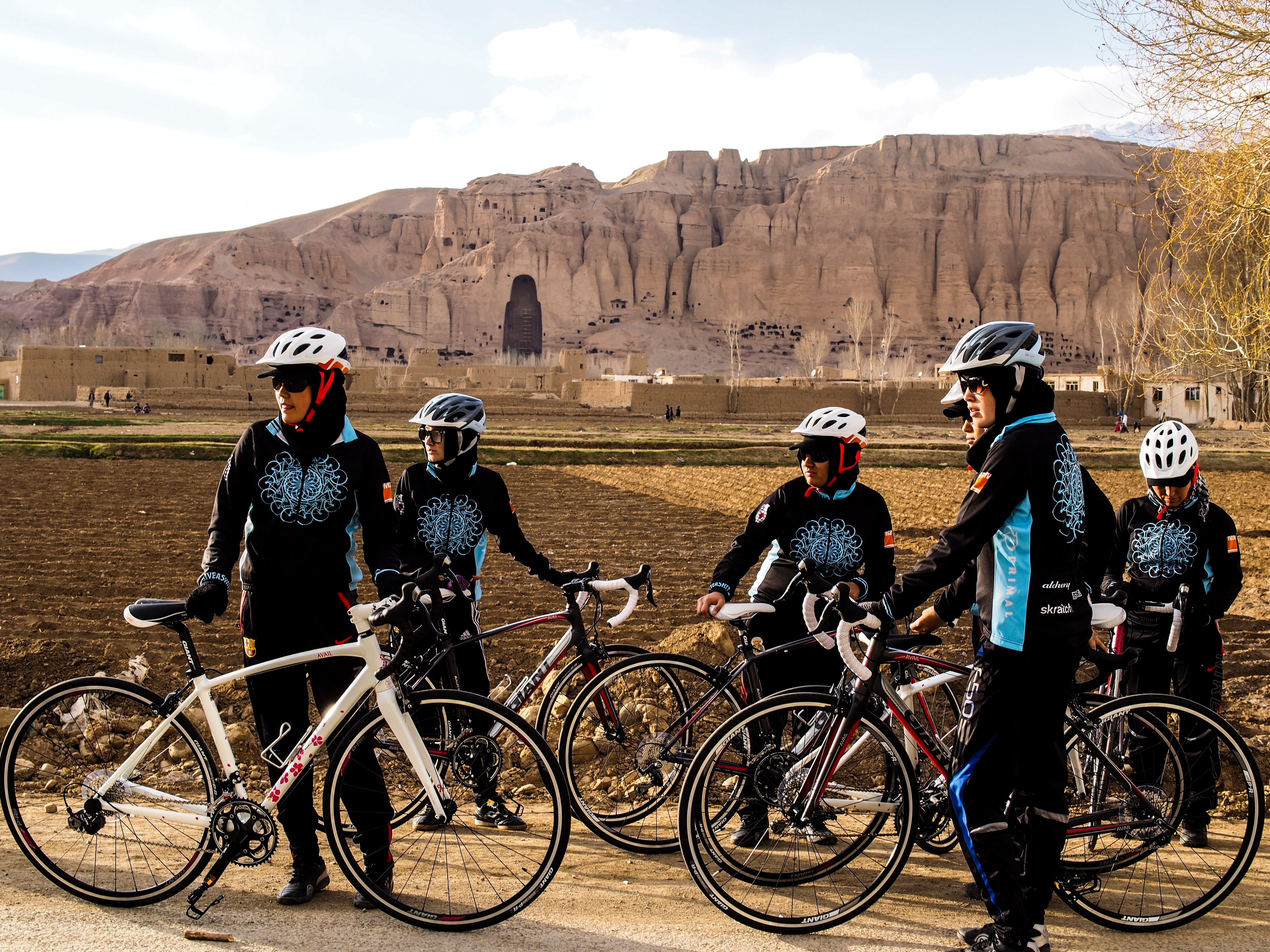National shock and outrage has followed the spread of cellphone footage showing Deputy Ben Fields attacking a female student at Spring Valley High School in Columbia, South Carolina for allegedly refusing to leave the classroom. The event has sparked national conversation on the disciplinary treatment of African American girls in schools.

The video shows the female student, who is African American, sitting at her desk in a classroom with other students. Deputy Fields, who is white, then puts his arm around the student’s neck, throwing the chair and desk backwards to the floor where the Deputy then drags the student several feet before telling her to put her arms behind her back. It is reported that the Deputy was called to the classroom after the teacher and principal asked the student to leave the classroom because she was “disturbing the class,” and she refused. Several students have now said that the Deputy was called to the classroom because the student was using her cell phone during class, according to Shaun King, who has been reporting on this story since it broke on Monday. This morning Sherriff Leon Lott, whose agency is in charge of the school resource program, asked that the US Justice Department conduct an independent investigation.
Tony Robinson Jr., who recorded the event, said, “I’ve never seen anything so nasty looking, so sick to the point that you know, other students are turning away, don’t know what to do, and are just scared for their lives.” He added, “That’s supposed to be somebody that’s going to protect us. Not somebody that we need to be scared off, or afraid.”
“The cellphone footage says it all. This is horrific and unconscionable treatment of a student. How can students learn in an atmosphere of fear where they are being treated with zero respect?” asked Eleanor Smeal, President of the Feminist Majority Foundation.
The student was arrested and charged with “disturbing schools” and has since been released to the custody of her parents. A second student, Niya Kenny, was also arrested after she attempted to stand up for the student that Deputy Fields was attacked. Kenny has since been released on a $1,000 bail.
“I had never seen nothing like that in my life, a man use that much force on a little girl. A big man, like 300 pounds of full muscle. I was like ‘no way, no way.’ You can’t do nothing like that to a little girl. I’m talking about she’s like 5’6″,” Kenny said.
Kenny’s mother was shocked and upset, but says that she thinks her daughter did the right thing. “Looking at the video, who was really ‘disturbing the school,’ was it my daughter or was it the officer who came into the classroom and did that to the young girl?” she asked.
Deputy Fields is no stranger to complaints about his actions and tactics as a school resource officer. He is set to stand trial in January 2016 for a lawsuit filed by a former student who alleges that Fields “recklessly targets African-American students with allegations of gang membership and criminal gang activity.”
There has been a spotlight on the mistreatment of black women and girls recently, spearheaded by Kimberlé Crenshaw and the African American Policy Forum (AAPF). The AAPF released a report last year titled “Black Girls Matter: Pushed Out, Overpoliced, and Underprotected,” which explains how girls of color face harsher school discipline than their white peers. The data collected reveals, among other things, that nationally black girls were suspended a startling six times more than white girls, while black boys were suspended three times as often as white boys.
Crenshaw and the AAPF also released a report this summer titled “#SayHerName: Resisting Police Brutality Against Black Women,” which highlights stories of Black women who have been killed by police, and studies forms of police brutality, such as sexual assault, that are often disproportionately experienced by women. “There is a paucity of data in cases of police violence against Black women, which perpetuates the myth that they are not impacted by this problem,” the report says.
Crenshaw said in a press release, “Although Black women are routinely killed, raped and beaten by the police, their experiences are rarely foregrounded in popular understandings of police brutality.”
Women and girls are often at the center of police violence. Since the #SayHerName campaign began, the hashtag has taken off on social media sparking marches, protests, rallies, and vigils across the country. Protests in San Fransisco and New York took place this summer, and were joined by family members of Tanisha Anderson, Rekia Boyd, Miriam Carey, Michelle Cusseux, Shelly Frey, Kayla Moore, and Alberta Spruill, all of whom are Black women killed by police violence.
Media Resources: WLTX 10/27/15; AAPF Report July 2015; AAPF Press Release 7/16/15; Feminist Newswire 6/10/15; 5/28/15; Ms Magazine 5/27/10;
















